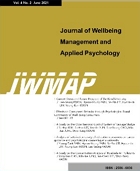 E-ISSN : 2586-6036
E-ISSN : 2586-6036
Ya-Hao LI
Fan YANG
Abstract
Against the backdrop of China's implementation of the "universal two-child" policy, the expansion of higher education, and the narrowing gender gap in the labor market and family status, we investigated the impact of the number of children on parental labor supply and occupational prestige scores using data from the China Family Panel Studies (CFPS) for 2016 and 2018. We found that the influence of children on the parental labor market shifted from labor supply to occupational prestige scores. Heterogeneity analysis reveals a more negative significant adverse impact of younger children on parental labor market performance compared with children over 7 years old. Compared to rural areas, parents in urban areas experience a more significant negative impact from an increase in the number of children. Extended families facilitate rural fathers' employment and leads to a decline in occupational prestige for urban parents.
- keywords
- The Number of Children, Labor Supply, Occupational Prestige Scores, Parental Household Roles, The Gender Difference
- Downloaded
- Viewed
- 0KCI Citations
- 0WOS Citations














